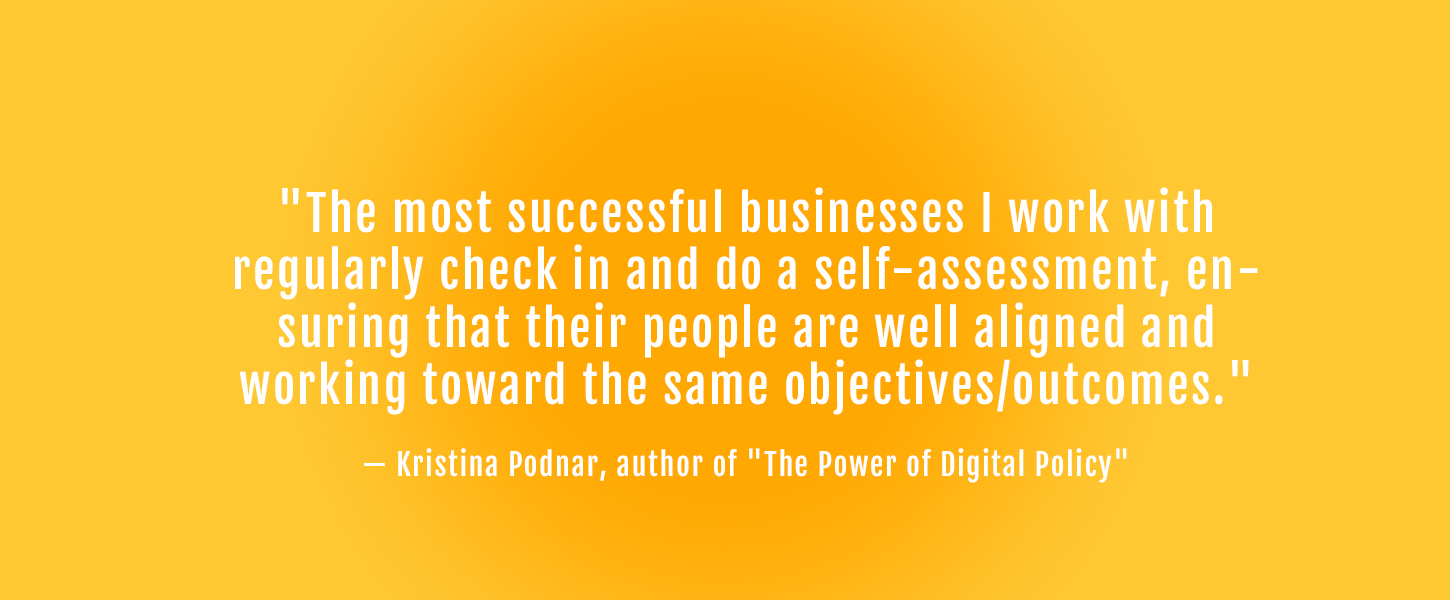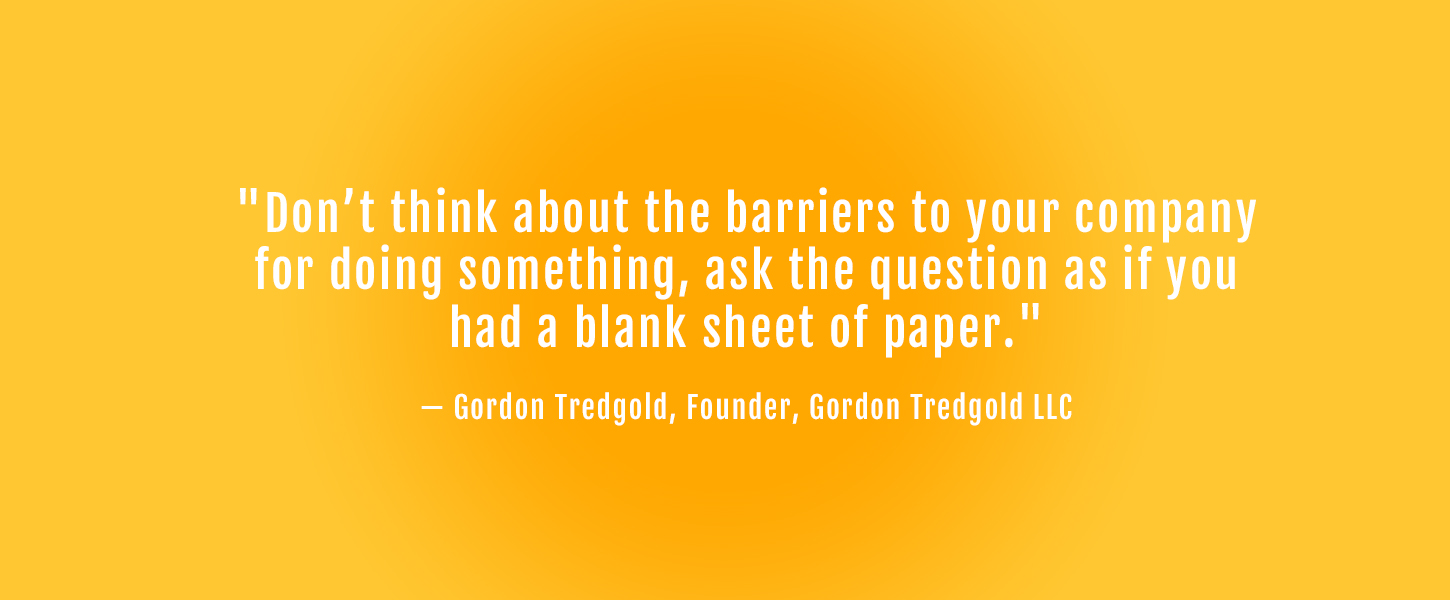– Zig Ziglar
AI. Big data. Inkjet. 3D. 4D. Consolidation. Going digital. Going social. Marketing automation. Content marketing. Account-based marketing. Cause marketing. Every time you turn around there is a new technology, trend, term or idea that you have to adapt to or try to understand. Whatever it is most likely is bigger, better, faster, smarter, stronger than anything that came before it, right?
So why are you so afraid? Why are you the last one to embrace or adapt? Is change really that big of a hurdle to overcome? Try this exercise. Close your eyes and try to imagine a business landscape where the average company lasts just 12 years on the S&P 500. Scary, right? According to Innosight’s “2018 Corporate Longevity Forecast,” that’s the reality we could be living by 2027.
And it is not just big companies. Any size company runs the risk of extinction if it does not figure out how to ask the right questions. For myriad reasons on multiple levels and in every market, change happens. Companies are overtaken by faster growing ones. There are mergers and acquisitions and buyouts. The world spins, and you either spin with it or, well, get spun out of the orbit.
Gordon Tredgold does not believe it has to be that way. The highly sought after international business speaker, coach and consultant believes that every company should aim to be a disruptor, not the disrupted. Just ask yourself, “What can I do differently?”

“Don’t think about the barriers to your company for doing something, ask the question as if you had a blank sheet of paper,” says Tredgold, author of several books, including “FAST: 4 Principles Every Business Needs to Achieve Success and Drive Results.” “How will [blank] transform my business? If you’re not disrupting your business, someone else will. It’s a ‘dog eat dog world’ and old dogs that can’t learn new tricks. If you don’t embrace that thinking, you may soon be out of business.”
Here is the thing about fear: Your competition can sense it. And when they do, there is opportunity. Tredgold, a business and IT transformation expert, has spent a lot of time sharing this sentiment with his clients over the years, successfully helping deliver $100 million programs, running $300 million departments and leading 1,000-staff teams for Fortune 100 companies.
In every instance, Tredgold has seen companies struggle to answer some of the most basic questions of the business cycle: How do you scale? How will you meet demand? If it is a new technology or new area of doing business, how will you be able to maintain your current position? Today’s business landscape is littered with markets that missed signs. The taxi industry (Uber and Lyft). Hotels (Airbnb). Music (Spotify, Pandora, Apple Music). Film and TV (Netflix, Amazon Prime, Hulu). And the list goes on.
“Some industries did not properly account for new business models,” Tredgold says. “Things that at one time seemed unthinkable are now the norm, so if you’re not prepared to think outside the box, you can be trapped in yesterday’s business model.”

– Stephen Richards
Today’s business culture can be tricky. Kristina Podnar says it is like the bully is loose on the playground and the monitor took a lunch break. Over the last 20 years, Podnar has partnered with digital marketing, IT and legal teams at global 1000 government and not-for-profit organizations to help meet the expectations and opportunities associated with the digital revolution.
Too often, she has seen smart, competent business leaders miss out on key opportunities for their companies. The reason, more than any other, is that they did not take an introspective look at themselves.
“The most successful businesses I work with regularly check in and do a self-assessment, ensuring that their people are well aligned and working toward the same objectives/outcomes,” says Podnar, consultant and author of “The Power of Digital Policy.” “For those who fail to do so, there is usually a level of chaos underway, wasted efforts, and at worst, people are doing things that place the business at unnecessary risk, including jeopardizing the brand.”
The world, Podnar says, is evolving fast. With innovations continually offering new opportunities, competitors are either lapping the organization or could at any moment, and trying to understand what is happening and what that means for your business is crucial.
“In working with multinationals as well as small and medium businesses, what is keeping business professionals up at night is very similar, but the scale differs,” Podnar says. “Everyone tosses out terms like Big Data, marketing automation, AI, digital transformation, omnichannel, IoT, without a clear sense of what that looks like—in both good and failed context. All of these things make business people nervous, and rightfully so. Add to that these bigger issues we face with social media platforms, targeting and retargeting, and add exchange, it’s enough to make anyone’s head spin.”
When it comes to issues like digital, there is still a layer of mystique in the technical aspects. Often, companies have organizational subject matter experts who are speaking a foreign language to them, i.e., algorithms, Big Data, etc.). “Couple this with a lack of visibility into what peers and competitors are doing, vendors who often are pushing a solution that sounds almost too good to be true, and scary sounding headlines, it is sometimes a miracle that business people are not completely frozen, hiding in the dark and unable to act,” Podnar says.

– Susan Jeffers
Facing or conquering fears enables business leaders to subconsciously influence decisions and actions, not having to carry around the fear and ambiguity that comes with it. When fear is present, most people are in a flight-or-fight mode, watching their backs, being defensive and wanting to look strong.
Podnar says those are not traits that drive success. “Instead, conquering or facing fears provides a mental and emotional space to take on other things, to learn and to process.”
This is especially true in spaces like digital, where those who acknowledge their fears and limitations are able to be open and transparent with their practices. “It allows others to step in and support them and teach or supplement for those areas of weakness,” Podnar says. “In doing so, business people learn, but they also become strong leaders. And that is the type of growth that we all strive for in today’s business.”
In the end, it often comes down to whether you are the disruptor or the disruptive. And as Tredgold says, the pace of change, degree of disruption and level of competition have never been higher. “If you’re not constantly improving or advancing, then you’re going to get overtaken. With new technologies available, new players can make massive inroads, while more traditional businesses may struggle to adapt existing processes and business models to the new ways of working.”
The key lies in not being afraid to ask.
3 fears and how to conquer them
- Fear of uncertainty — Just the fear of the unknown is hard, both professionally and personally. It is fear that holds most of us back. The best way to overcome it either in a business or personal setting is to learn to anticipate what will happen next, since the vision or guiding principles help you and your business move forward.
-
Fear of losing control — For most business professionals, control (implied or explicit) provides a sense of comfort and assurance. When you don’t have control, you think of bad things happening. On the business side, this means being overly cautious to the point you cannot compete in the changing marketplace. Think about the extremes of what should be allowed because of the risks and opportunities that those extremes provide.
-
Fear of change — Worrying about change robs you of valuable time and opportunities. Do you keep up, do something differently or will you become irrelevant? As scary as change can be, good things can come from it. But if you don’t allow yourself to try or you resist, your energy will be focused on the negative aspects of transformation. It is best to avoid that negativity and dive in.
-
What’s going on in my business that is different than it was five years ago?
-
How is technology influencing the way we do our work?
-
How is technology influencing our customers?
- How are society’s norms influencing business?
- How are shifting demographics influencing business?
- What skills used to be important that aren’t anymore? What replaced them?
-
How are our competitors changing?
-
How are our customers changing?
- How has the competitive landscape changed?
-
How have my professional relationships grown over the last decade?
-
What can I do to strengthen my network?
-
How do I add value at work?
-
How has that changed in the last 10 years?
-
What do I need to do to adapt in the future?
-
If I knew I couldn’t fail, what would I try?

